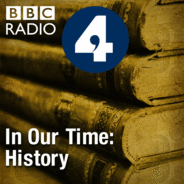
Kultur & Gesellschaft
In Our Time: History Folgen
Historical themes, events and key individuals from Akhenaten to Xenophon.
Folgen von In Our Time: History
phonostar hat keine Informationen zu diesem Inhalt.
Gehe auf die Website des Senders um weitere Informationen zu erhalten.